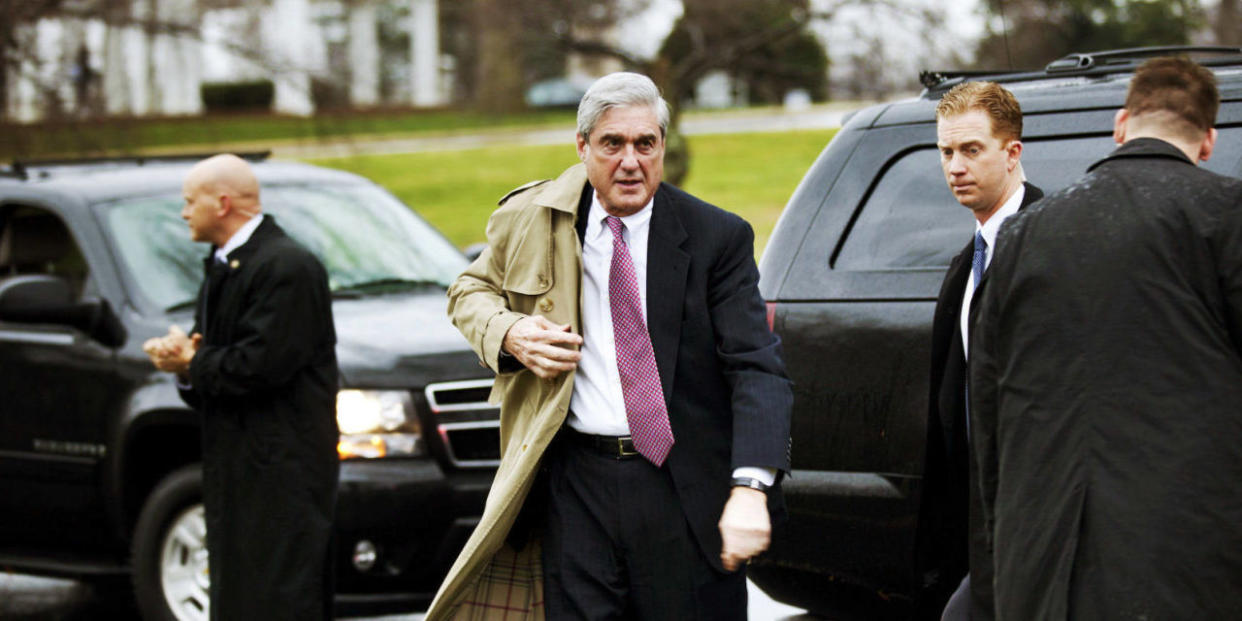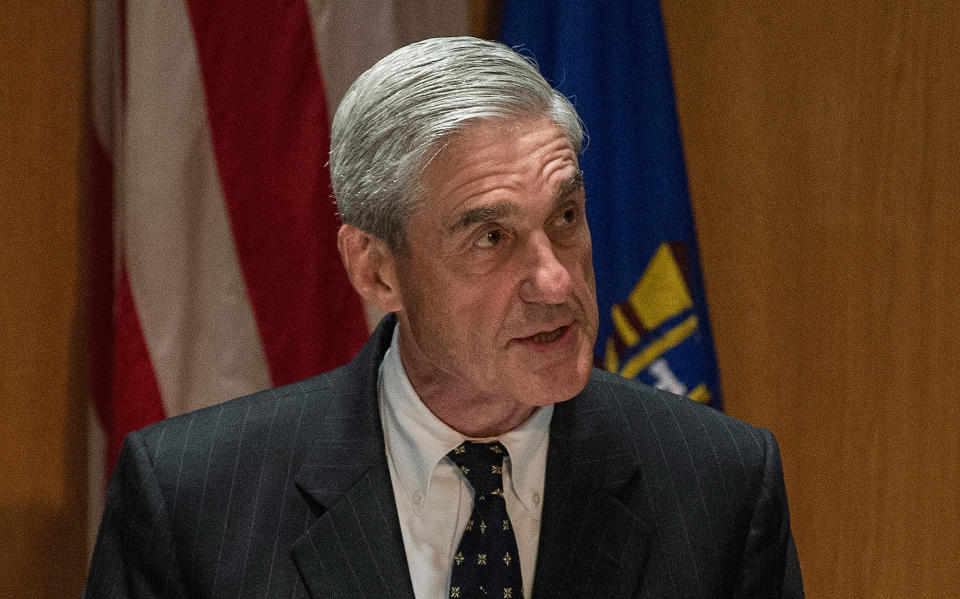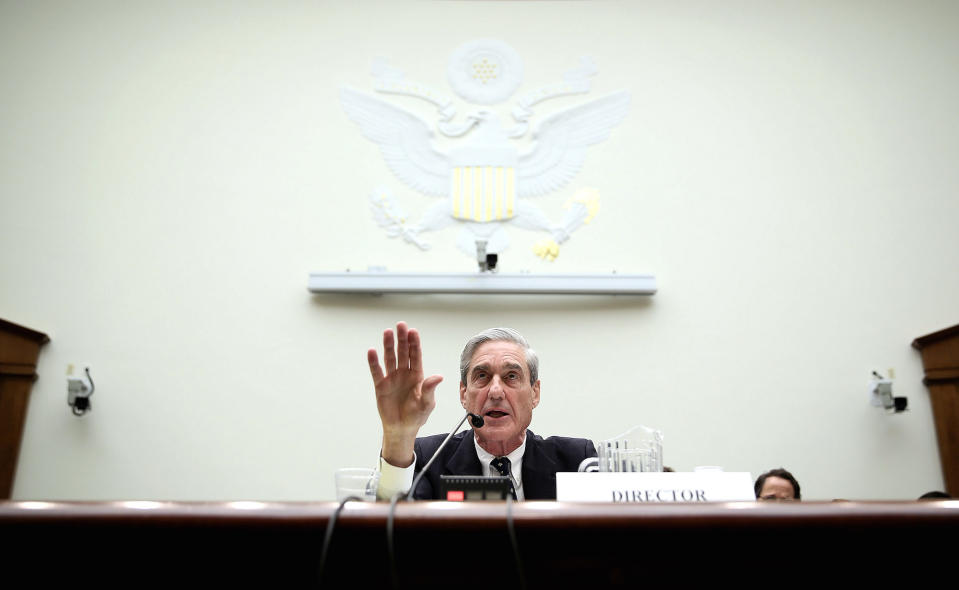Who Is Robert Mueller, the Special Prosecutor in the Russia Investigation?

The Department of Justice announced Wednesday that Deputy Attorney General Rod Rosenstein appointed a special prosecutor to lead the department's Russia investigation. The move follows a rapid deterioration of the investigation's overall credibility. First, Attorney General Jeff Sessions was forced to recuse himself, then President Trump fired FBI Director James Comey while his agency was looking into whether Trump's associates colluded with Russian officials during the 2016 election. A special prosecutor represents a real step towards an independent process that the public can have faith in, even if serious issues-like the fact that the president will still choose the next FBI director-remain.
The man Rosenstein tapped for the job was Robert Mueller, who preceded Comey as FBI director. But who is Mueller, exactly?
FBI Director
Mueller, 72, was appointed Director of the FBI by President George W. Bush in 2001, just a week before the September 11 terrorist attacks. Prior to that, he was a United States Marine and a U.S. Attorney, and he took the reins at the bureau with a sterling reputation. He was asked to stay on by President Barack Obama, and even saw his 10-year term extended by an extra two years up to 2013. That makes him the second-longest-serving FBI director in history, after J. Edgar Hoover. He enjoys strong bipartisan support despite a long career in the public eye.

According to The New York Times, Mueller saved the FBI after the September 11 attacks, "when there were calls to break it up and create a separate domestic intelligence agency. Mr. Mueller, who came to the agency just one week before the attacks, beat back those efforts and is credited with building the modern FBI."
Warrantless Wiretaps
In 2004, Mueller was one of very few people in America aware of the Bush administration's warrantless wiretapping program. Following the September 11 attacks, according to The Washington Post, the administration authorized the NSA to "monitor communications between the United States and foreign countries without court oversight when a party is believed to be linked to al-Qaeda." The program was due to be reauthorized in 2004, but Justice Department lawyers had determined it was unconstitutional-and Mueller opposed it.
At one point, he rushed to the bedside of Attorney General John Ashcroft, who was recovering from gallbladder surgery, to try to prevent White House Counsel Alberto Gonzalez and Chief of Staff Andy Card from getting Ashcroft to reauthorize it. He actually went to provide support to an ally in the Justice Department who was also trying to stop the program: Deputy Attorney General-and, while Ashcroft was bedridden, Acting Attorney General-James Comey.
Even after that, the Bush administration tried to push forward with reauthorizing the warrantless wiretaps. Comey and Mueller threatened to resign if they did so, and ultimately President Bush relented. It's a stunning example of how to stand up to the White House.

The Congressional Raid
In a controversial episode that drew the ire of both Congressional leaders and White House officials, Mueller gave the go-ahead in 2006 for the FBI to conduct a physical search of the offices of Congressman William Jefferson, a Louisiana Democrat, who was suspected of accepting bribes. It was the first time in history the Bureau had conducted a physical search of a sitting congressman. The FBI obtained a search warrant and sent 15 agents to carry out the search over 18 hours, seizing documents in the process.
After complaints from Capitol Hill and within the administration, White House officials demanded that the FBI return the seized materials to Jefferson. Mueller refused, and when pressed, he and Attorney General Alberto Gonzalez threatened to resign in protest, according to The Washington Post. Ultimately, the White House backed down-although a compromise was reached where the documents would be placed under seal for 45 days.
Ultimately, Jefferson was convicted on nearly a dozen corruption charges in 2009, and sentenced to 13 years in prison.

The Ray Rice Tape
The NFL enlisted Mueller to investigate its handling of the Ray Rice domestic violence case. League commissioner Roger Goodell's handling of the incident, which exploded into the national consciousness when a tape emerged of then-Baltimore Ravens running back Rice assaulting his fiancée in an Atlantic City elevator, was roundly criticized, so Mueller was brought in. He found no evidence the NFL had seen or possessed the tape without taking action prior to its appearance on TMZ, essentially clearing Goodell's name. But it was another example of his capacity to handle a high-profile case.
Private Practice
Mueller comes to the special prosecutor job from the private law firm WilmerHale, whose lawyers represent former Trump campaign chairman Paul Manafort, his son-in-law and senior adviser Jared Kushner, as well as his daughter, Ivanka. Mueller immediately terminated his association with the firm on taking the prosecutor gig, and so far those connections have not raised concerns about conflicts of interest.
You Might Also Like

